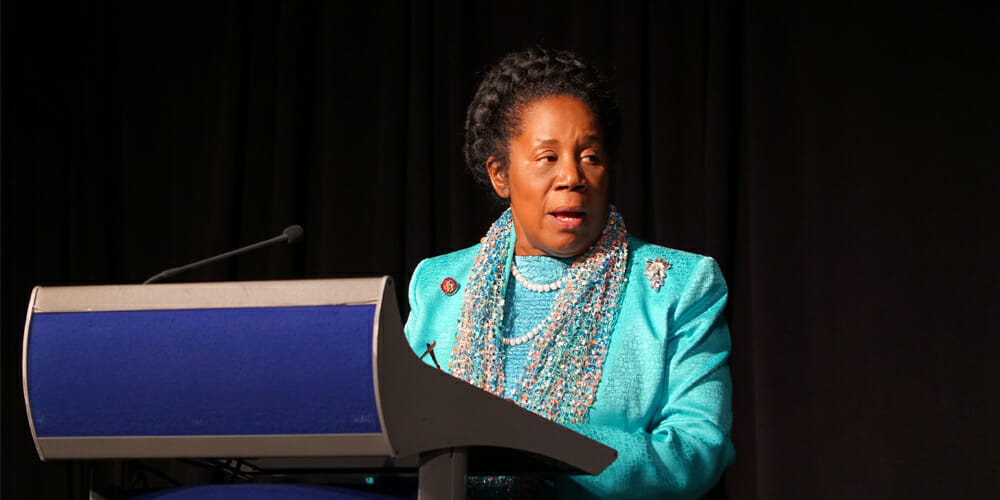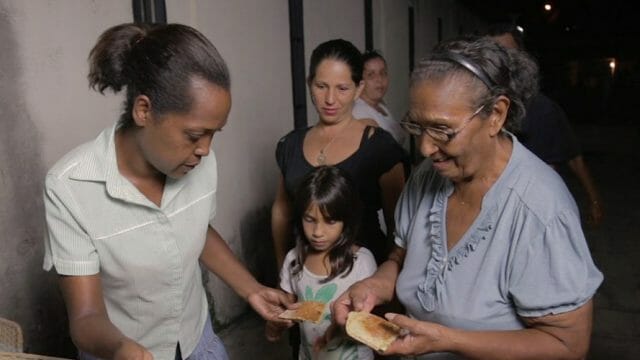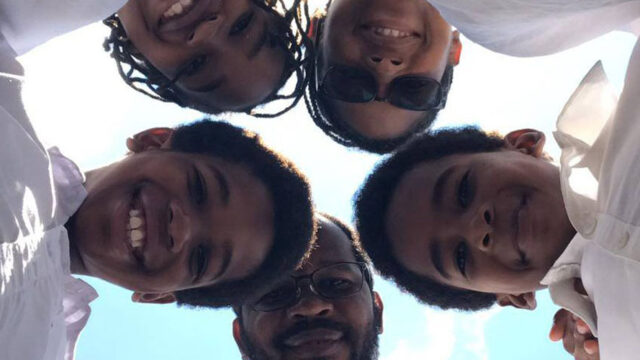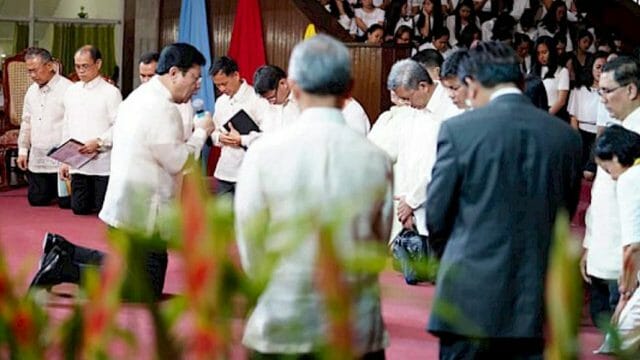Annual Religious Liberty Dinner reminds guests why religious freedom is essential.

For Seventh-day Adventists, fighting for the freedom of conscience and religious liberty for all people is not an option, religious liberty advocates said at the 17th Annual Religious Liberty Dinner in Washington, D.C.
The May 20, 2019 event brought together more than 120 church and government experts, diplomatic officers, church leaders, and non-governmental organization (NGO) advocates to reflect on some of the current challenges to religious freedom around the world. It also served as a reminder to guests at the Religious Freedom Center of the Newseum Institute that the roots of freedom of conscience and belief run much deeper than people often think.
“Religious liberty is being free from religious harassment, persecution, and subjugation, but its roots are much deeper than just a social arrangement,” said IRLA secretary-general Ganoune Diop. “It’s not just something legislators vote.”
Diop, who also heads the Adventist Church’s Public Affairs and Religious Liberty Department, went on to explain why religious freedom is a must for every person.
“[Religious freedom] is a divine attribute reflected in humans,” Diop explained. “Freedom of conscience is connected in fact to what it means to be human because love cannot be forced; love needs freedom.”
In that context, Diop emphasized, religious liberty is much more than just promoting an idea. “It is part of a humanizing mission.”
The “Championing Freedom of Conscience for All” dinner was sponsored by the Adventist Church’s North American Religious Liberty Association (NARLA) and the International Religious Liberty Association (IRLA).
A Voice in Congress
The keynote address of the evening was delivered by U.S. Congresswoman Sheila Jackson Lee, described as “an influential and forceful voice in Washington.” Jackson Lee, one of two Seventh-day Adventists in the U.S. House of Representatives, has extensive experience in upholding the constitutional rights of all people and championing the rights of women and children.
Jackson Lee, who has been named (by US News and World Report) one of the “10 most influential lawmakers in the House of Representatives,” said that religious liberty is all about working on important legislation, reaching across the political aisle.
“Religion and faith do not stop at the border of political affiliation, and this is the reason every door should be open to religious liberty advocates,” she said.
Jackson Lee also called for engaging millennials and others so they can get excited about religious liberty. “Religious liberty is human rights,” she emphasized.
She also made clear that religious liberty advocacy knows no borders.
“Even in the U.S., we must stand together and link arms to fight together because unless we continue to fight, religious liberty will have no one to stand for it. And there are people around the world who depend on us to go on fighting,” she said.
Walking on the Ground
The 2019 event allowed religious liberty advocates to acknowledge the contribution of three people who are at the forefront of what several called “an ongoing fight” to support the rights of people of all faiths or no faith.
The recipient of one of the two International Awards was Chris Seiple, who has led efforts to bring about policy change within many sensitive and complex situations in various countries around the world. “Religious liberty is walking with somebody on the ground,” said Seiple as he thanked IRLA for the award. “Linking policy with people, from grassroots to governments, is the way to go.”
Seiple promotes initiatives of traditional advocacy — naming the injustice and getting people out of jail — as well as a proactive promotion of the benefits of religious freedom to safety and stability, economic development, and business. His Institute for Global Engagement also strives to increase religious freedom literacy.
“We work to provide skill sets to relate better to each other,” Seiple said. “We can do it, but we must work together among Christian denominations and then to other world faiths.”
The second International Award recipient was Asma T. Uddin, a religious liberty lawyer and scholar who works for the protection of religious expression for people of all faiths.
Uddin was introduced as “an eloquent advocate in the toughest of circumstances” and as someone who has advocated for religious liberty for majorities as well as minorities. Of her work, it has been said (on National Public Radio), “Prejudice cannot survive her testimony.”
Finally, the National Award’s recipient was Stanley W. Carlson-Thies, who works to educate religious institutions, faith-based organizations, non-profits, and the Congress of the United States about the essential role of religious liberty.
“We don’t provide courtroom defenses but work upstream, before bad bills are passed,” Carlson-Thies said in accepting the award. “Our efforts are non-partisan and multi-faith.”
Carlson-Thies emphasized that the job is based on communal efforts and partnerships. Within that context, he called religious freedom advocates to be more intentional in protecting the rights of everyone. It is something, he said, the Seventh-day Adventist Church is doing well.
“Other religious communities need to learn from the Seventh-day Adventist Church, how to be intentional about defending religious freedom [because] it is part of our witnessing to the world and our service to our nation,” Carlson-Thies said.
Always Vigilant
Adventist Church president Ted N. C. Wilson emphasized the importance of being always ready to defend the right of every human being to worship according to his or her conscience.
“No matter what the Constitution says, you always need people to stand up for religious freedom and religious liberty,” he said. “Every one of us has to be an ambassador of religious liberty.”
In that context, Wilson emphasized that the IRLA annual event is “an important opportunity to renew your commitment to religious freedom.” In praying for every participant, he asked God to add His blessing to the efforts of religious liberty advocates.
“Please bless the efforts of so many … who help leaders and people to remember that constant vigilance of religious liberty is of utmost importance,” he said.








